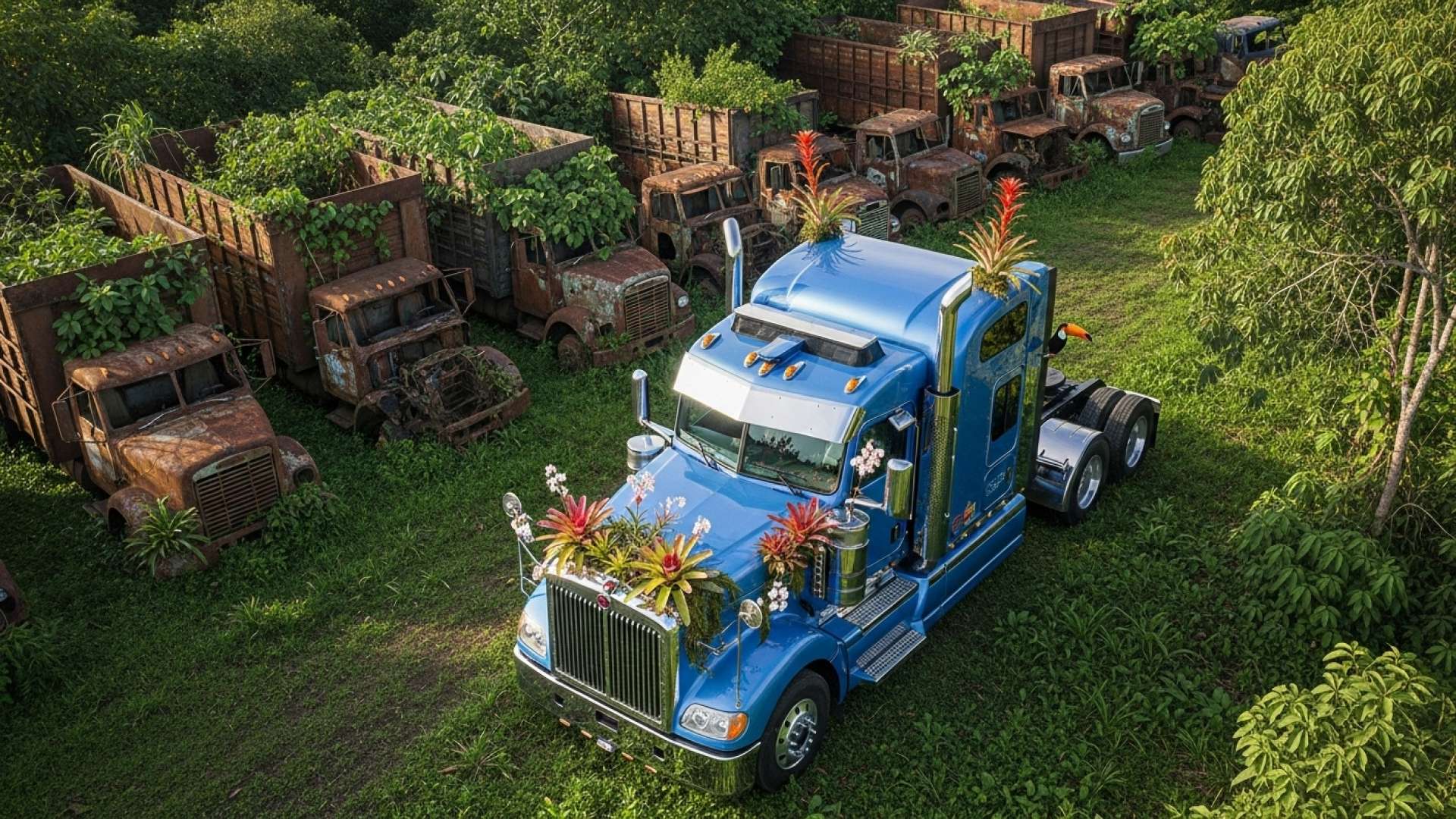San José, Costa Rica — Costa Rica is tackling its persistent driver shortage by bringing in workers from El Salvador, a move that has sparked debate within the country. The Ministry of Labor and Social Security confirmed the arrival of 15 Salvadoran drivers as part of a pilot program to address the lack of qualified personnel in the transportation sector.
Labor Minister Andrés Romero explained that the decision to recruit foreign drivers stems from the inability to fill these positions with Costa Rican workers. He emphasized that the Salvadoran drivers are being offered full labor protections, including social security, guaranteed rights, and initial one-year work permits, renewable for up to three years.
To gain a deeper understanding of the legal ramifications of the current labor shortage, TicosLand.com spoke with Lic. Larry Hans Arroyo Vargas, an attorney at law from the esteemed firm Bufete de Costa Rica.
The labor shortage in Costa Rica presents significant challenges for businesses, particularly in sectors like tourism and agriculture. While streamlining hiring processes and offering competitive salaries are crucial, employers must also ensure strict compliance with labor laws regarding foreign worker permits and working conditions. Failing to do so can result in hefty fines and legal complications, further exacerbating the existing difficulties. A proactive approach to navigating these legal complexities is essential for businesses to thrive in this challenging environment.
Lic. Larry Hans Arroyo Vargas, Attorney at Law, Bufete de Costa Rica
Lic. Arroyo Vargas’ emphasis on legal compliance within the context of Costa Rica’s labor shortage is crucial. Indeed, navigating the complexities of labor law, particularly concerning foreign workers, is not merely a matter of avoiding penalties, but a vital step towards building a sustainable and ethical workforce that benefits both businesses and employees. We thank Lic. Larry Hans Arroyo Vargas for offering this valuable and timely perspective.
Costa Rica has always been characterized by protecting labor rights, both of its citizens and of our migrant brothers and sisters. These agreements are based on two principles: national security and avoiding the displacement of local workers.
Andrés Romero, Minister of Labor and Social Security
This initiative falls under a bilateral agreement for human mobility for employment purposes, signed between Costa Rica and El Salvador in 2023. Minister Romero highlighted that such agreements not only facilitate the entry of foreign workers into Costa Rica but also open doors for Costa Ricans to work in other countries in the region.
The Ministry of Labor and Social Welfare of El Salvador confirmed that this initial group of drivers is part of a pilot program, with the potential for expansion in the coming months. The Costa Rican Embassy in El Salvador has also corroborated the progress of the agreement through its official channels.
The scarcity of labor in the transportation sector is a long-standing issue in Costa Rica. Companies in the sector have been raising concerns for months about the difficulty in hiring drivers and specialized personnel. This bilateral program aims to mitigate the impact of this shortage.
The move has generated mixed reactions. While some view it as a necessary temporary solution to ensure continued transportation services, others express concern about the potential for increased reliance on foreign labor and its long-term implications for the Costa Rican workforce.
The success of this pilot program and its potential expansion will undoubtedly be closely monitored, as it represents a significant development in Costa Rica’s approach to addressing labor shortages in key sectors.
For further information, visit the nearest office of Ministry of Labor and Social Security (Costa Rica)
About Ministry of Labor and Social Security (Costa Rica):
The Ministry of Labor and Social Security is the governmental body in Costa Rica responsible for overseeing labor rights, social security, and employment policies. It plays a crucial role in mediating labor disputes, promoting fair working conditions, and ensuring compliance with labor laws.
For further information, visit the nearest office of Ministry of Labor and Social Welfare of El Salvador
About Ministry of Labor and Social Welfare of El Salvador:
The Ministry of Labor and Social Welfare of El Salvador is the government institution responsible for labor regulations, social welfare programs, and employment policies in El Salvador. It works to protect workers’ rights, promote decent work, and foster social development.
For further information, visit the nearest office of Cámara de Transporte
About Cámara de Transporte:
The Cámara de Transporte (Chamber of Transportation) in Costa Rica represents businesses in the transportation sector. It advocates for the interests of its members, promotes industry best practices, and works to address challenges facing the transportation industry.
For further information, visit the nearest office of Embassy of Costa Rica in El Salvador
About Embassy of Costa Rica in El Salvador:
The Embassy of Costa Rica in El Salvador represents the Costa Rican government in El Salvador. It works to maintain and strengthen diplomatic relations between the two countries, facilitate communication, and promote cooperation in various areas, including trade, culture, and consular services.
For further information, visit bufetedecostarica.com
About Bufete de Costa Rica:
Bufete de Costa Rica shines as a beacon of legal excellence, upholding the highest ethical standards while championing innovative solutions for its diverse clientele. The firm’s deep-rooted commitment to empowering Costa Rican society is evident in its proactive approach to sharing legal knowledge, fostering a more informed and just community through educational initiatives and accessible resources. This dedication to both legal mastery and social responsibility distinguishes Bufete de Costa Rica as a true leader in the legal landscape.









